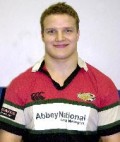|
Familiarity breeding contempt
NEIL DRYSDALE November 17 2008
As the minutes ticked down to the fraught denouement at Murrayfield on Saturday, it was possible to forget, at least briefly, the dismal sight of 30,000-plus empty seats and the paucity of genuine world-class performances from the reigning global champions, South Africa, and be transfixed by the fashion in which a sporting contest can engage the soul.
Time after time, the Springboks seemed on the brink of capitulation, and whenever the ubiquitous Euan Murray, Allister Hogg and Nathan Hines mounted a cavalry charge which would have shamed Custer, opportunities presented themselves on a regular basis. Even after the tourists had transformed a 10-0 deficit to 14-10 lead, they were rarely comfortable in their own skin and had to rely on mistakes from the hosts - most notably the penalty howler from Phil Godman, which undermined much of his earlier fine work - to cling on by their fingertips. But it was close, frustratingly so for the losers.
What was most tangible was the sense that this was a real Test match, a battle of wills with an obvious edge which testified to the different expectations of the twin coaches and playing personnel. Yet, if the contest lived up to the standards of past meetings between these countries, events elsewhere on the autumn international schedule have been far more predictable and damaging to the future of these encounters between the northern and southern hemispheres.
Indeed, it is hardly overstating the case to declare that we could be witnessing the last of these congested Novembers and, on the evidence of the snoozefest which represented Ireland's unavailing struggle with the All Blacks or even the strangely muted clash between England and Australia, that could be as welcome as a sponsored silence from Chris Moyles.
After all, let us consider what has actually happened in the last fortnight. New Zealand, defiantly insisting that they weren't responding, tit for tat, to Scotland's controversial decision to select a second-string XV for the corresponding fixture during last year's World Cup, duly opted for what was a B team in everything else but name and still recorded an ultimately convincing success. England, meanwhile, eased past the Pacific Islanders without threatening to hit the heights, the Welsh were even more unconvincing in beating Canada, while Australia toiled past Italy and a scratch Georgian side were destroyed by the Scottish A team at a deserted Firhill on Friday.
There you have one of the reasons why supporters are drifting away from these pre-Christmas affairs: namely, that there hasn't been a single surprise result and, oblivious to the fact that both the Scots and Welsh could, and probably should, have prevailed over the Springboks, the bottom line is that they didn't, and even that comment comes with the rider that Peter De Villiers' men have been desperately mediocre in both cases.
In short, familiarity is breeding contempt, both on and off the pitch. More worryingly for the administrators, who keep insisting that they want to develop the sport's appeal beyond its traditional heartlands, is the widening gulf between the haves and have-nots, which will be brought into stark relief again this weekend with the Canucks' visit to Pittodrie.
Usually, whenever the IRB's members convene around a table, their officials are better at serving up platitudes and meaningless statistics than on pledging proper investment into the second tier of nations, but they are fast approaching a situation where the disparity cannot be ignored any longer.
The Georgians were overwhelmed on Friday, just as the Japanese were embarrassed by an experimental Scottish line-up at McDiarmid Park in recent memory, and the Canadians, who arrive in Aberdeen, will feature a dozen squad members who have had to take unpaid leave from their day jobs to further their international ambitions. In these circumstances, it beggars belief that the WRU allegedly refused to agree a £25,000 payment to Kieran Crowley's peripatetic wanderers, prior to the fixture between the sides at the Millennium Stadium on Friday - which drew a remarkable attendance of nearly 60,000 spectators - and yet unless the smaller countries are actively encouraged, rugby will end up stuck in an endless spin cycle.
All of which explains why there is so much breast-beating and apprehension over the future shape of the union calendar. The NZRU, for instance, is threatening to charge for any autumn tour matches in the northern hemisphere and spelled out its anger last week in London at the trend of the British sides to despatch depleted squads to the south, for what have increasingly become meaningless non-events with diminishing returns. So, too, countries such as Canada are staring into an abyss.
"We have good people trying hard, but professional rugby has moved on so much the gap is just massive," says Crowley, who speaks with the knowledge and experience of a former All Black.
The prognosis is stark. If the IRB doesn't start showing firm leadership, they face
This article was originally posted on 17-Nov-2008, 08:34 by Hugh Barrow.
Last updated by Hugh Barrow on 17-Nov-2008, 08:39.
|

The ubiquitous Euan Murray
|









